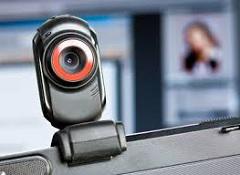Malware Used to Spy on People Having Sex
Posted by: Timothy Weaver on 10/09/2015 09:28 AM
[
 Comments
]
Comments
]
Stefan Rigo, from Leeds, 33, spent five to 12 hours a day watching people, some that he knew and some strangers, to spy on people having sex.
 Rigo was given a 40-week suspended sentence in prison, placed on the Sex Offenders Register for seven years and commanded to do 200 hours of unpaid work by magistrates in Leeds after admitting voyeurism at a prior hearing.
Rigo was given a 40-week suspended sentence in prison, placed on the Sex Offenders Register for seven years and commanded to do 200 hours of unpaid work by magistrates in Leeds after admitting voyeurism at a prior hearing.
The arrest came after an international operation that targeted users of software designed to take over, control and steal information remotely from computers. The operation discovered that Rigo used his girlfriend’s bank account to purchase the malware so that he could take total control over target computers anywhere in the world.
The Blackshades malware can turn the webcams on and off, access banking and other personal information, download new and potentially illegal content, and command the victim's computer to help commit criminal acts, for example denial-of-service attacks.
“With yet another case of webcams compromised by hackers, the threat of insecure connected devices to our privacy could never be clearer. In this shocking case, people's most intimate moments were watched, and the threat of compromised connected devices will only get worse as we introduce more and more smart products into our homes,” said Adrian Beck, director of enterprise security programme management at Veracode.
The National Crime Agency (NCA) urged computer users to avoid clicking on unknown links or files send via suspicious sources.
Source: SCMagazine
 Rigo was given a 40-week suspended sentence in prison, placed on the Sex Offenders Register for seven years and commanded to do 200 hours of unpaid work by magistrates in Leeds after admitting voyeurism at a prior hearing.
Rigo was given a 40-week suspended sentence in prison, placed on the Sex Offenders Register for seven years and commanded to do 200 hours of unpaid work by magistrates in Leeds after admitting voyeurism at a prior hearing.The arrest came after an international operation that targeted users of software designed to take over, control and steal information remotely from computers. The operation discovered that Rigo used his girlfriend’s bank account to purchase the malware so that he could take total control over target computers anywhere in the world.
The Blackshades malware can turn the webcams on and off, access banking and other personal information, download new and potentially illegal content, and command the victim's computer to help commit criminal acts, for example denial-of-service attacks.
“With yet another case of webcams compromised by hackers, the threat of insecure connected devices to our privacy could never be clearer. In this shocking case, people's most intimate moments were watched, and the threat of compromised connected devices will only get worse as we introduce more and more smart products into our homes,” said Adrian Beck, director of enterprise security programme management at Veracode.
The National Crime Agency (NCA) urged computer users to avoid clicking on unknown links or files send via suspicious sources.
Source: SCMagazine
Comments






